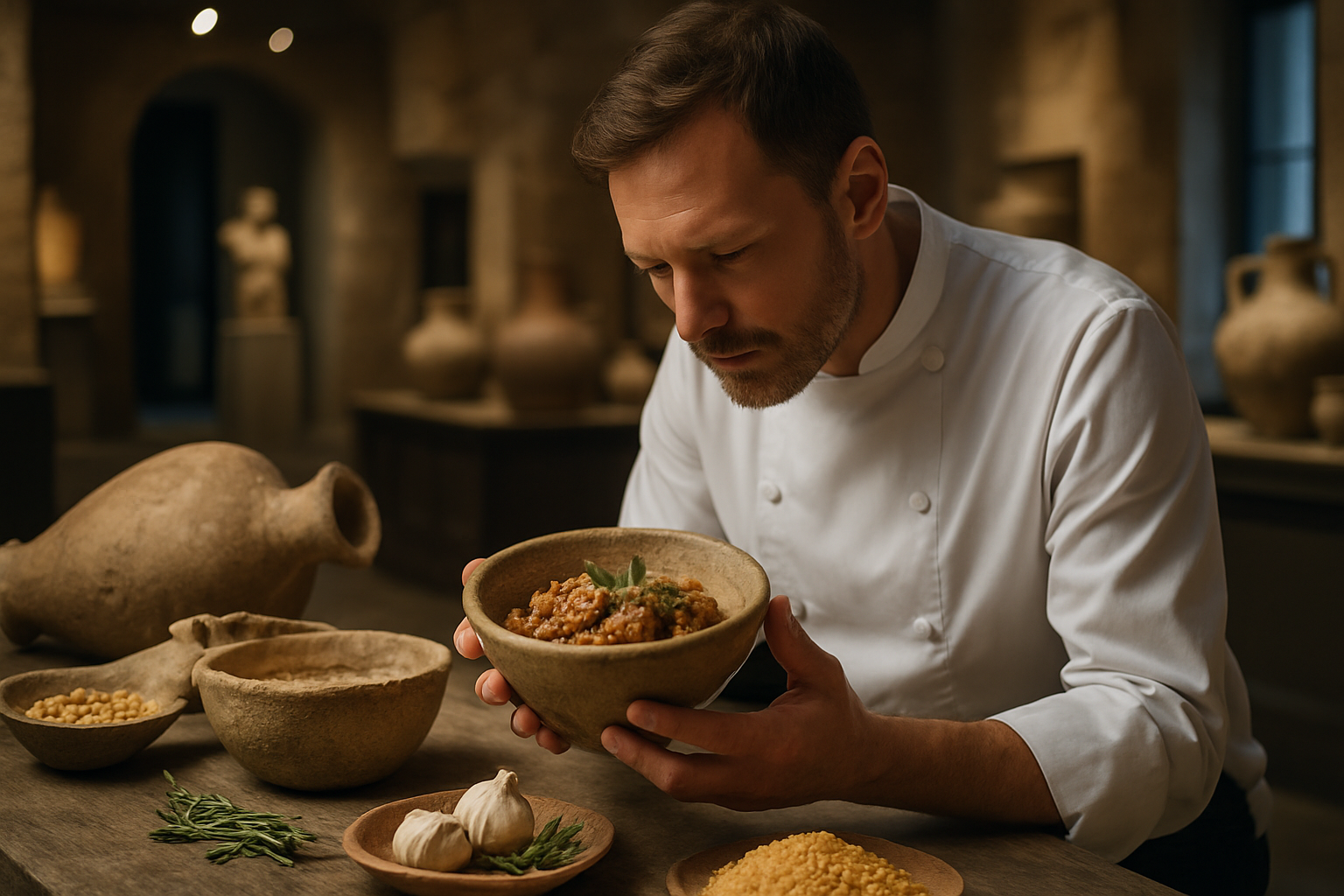Exploring the World Through Culinary Time Travel
Embark on a gastronomic journey that transcends both space and time. Culinary time travel is revolutionizing the way adventurers experience destinations, offering a unique blend of history, culture, and flavor. This innovative approach to exploration allows travelers to immerse themselves in different eras through authentic recipes, traditional cooking methods, and historically accurate dining experiences.

The roots of this trend can be traced back to living history museums, where visitors could observe and sometimes participate in historical cooking demonstrations. However, culinary time travel takes this concept further by offering fully immersive experiences that engage all the senses and provide a deeper understanding of past cultures through their cuisine.
How Culinary Time Travel Works
Culinary time travel experiences are meticulously crafted to ensure historical accuracy and authenticity. These journeys typically involve:
-
Extensive research into historical recipes, ingredients, and cooking techniques
-
Collaboration with historians, archaeologists, and local experts
-
Sourcing of period-appropriate ingredients or suitable substitutes
-
Recreation of historical dining environments and customs
-
Educational components that provide context for the culinary experience
Travelers might find themselves feasting on a Roman banquet in Italy, savoring medieval delicacies in a candlelit castle, or experiencing the flavors of the American Revolution in a colonial tavern. Each experience is designed to offer insights into the daily lives, social customs, and culinary traditions of the chosen era.
The Impact on Local Communities and Tourism
The rise of culinary time travel has had a significant impact on local communities and the tourism industry. This innovative approach to travel:
-
Preserves and promotes traditional culinary techniques and recipes
-
Creates new job opportunities for local artisans, farmers, and food historians
-
Encourages sustainable tourism by focusing on authentic, small-scale experiences
-
Attracts history enthusiasts and food lovers, diversifying the tourism demographic
-
Revitalizes interest in historical sites and lesser-known destinations
Many regions have embraced culinary time travel as a way to showcase their unique cultural heritage and attract visitors seeking more meaningful travel experiences. This has led to the development of specialized tour operators, cooking schools, and even entire festivals dedicated to historical gastronomy.
Challenges and Considerations
While culinary time travel offers exciting possibilities, it also presents unique challenges:
-
Ensuring historical accuracy while meeting modern food safety standards
-
Balancing authenticity with palatability for contemporary tastes
-
Addressing dietary restrictions and allergies within historical contexts
-
Managing the environmental impact of sourcing rare or out-of-season ingredients
-
Avoiding cultural appropriation and misrepresentation of historical events
Successful culinary time travel experiences navigate these challenges through careful research, collaboration with local communities, and a commitment to ethical and sustainable practices.
The Future of Culinary Time Travel
As technology advances and interest in immersive travel experiences grows, culinary time travel is poised for further innovation. Future trends may include:
-
Virtual reality components that enhance the historical atmosphere
-
Augmented reality apps that provide additional context and information
-
Personalized experiences tailored to individual interests and dietary needs
-
Integration with other forms of historical reenactment and living history
-
Expansion into lesser-known cuisines and historical periods
The potential for culinary time travel to educate, inspire, and connect people across cultures and generations is vast. As this trend continues to evolve, it promises to offer travelers increasingly rich and meaningful ways to explore the world through the lens of food history.
Savor the Past: Essential Tips for Culinary Time Travelers
-
Research the historical context of your chosen era before embarking on a culinary time travel experience
-
Be open to trying unfamiliar flavors and dining customs
-
Respect the authenticity of the experience by avoiding modern technology during meals
-
Engage with hosts and fellow travelers to gain deeper insights into historical culinary practices
-
Consider keeping a food journal to document your journey through time and taste
In conclusion, culinary time travel represents a fascinating frontier in the world of experiential tourism. By allowing travelers to literally taste history, it offers a profound and memorable way to connect with the past and gain new perspectives on different cultures. As this trend continues to grow and evolve, it promises to reshape our understanding of both food and travel, creating bridges across time through the universal language of cuisine.





